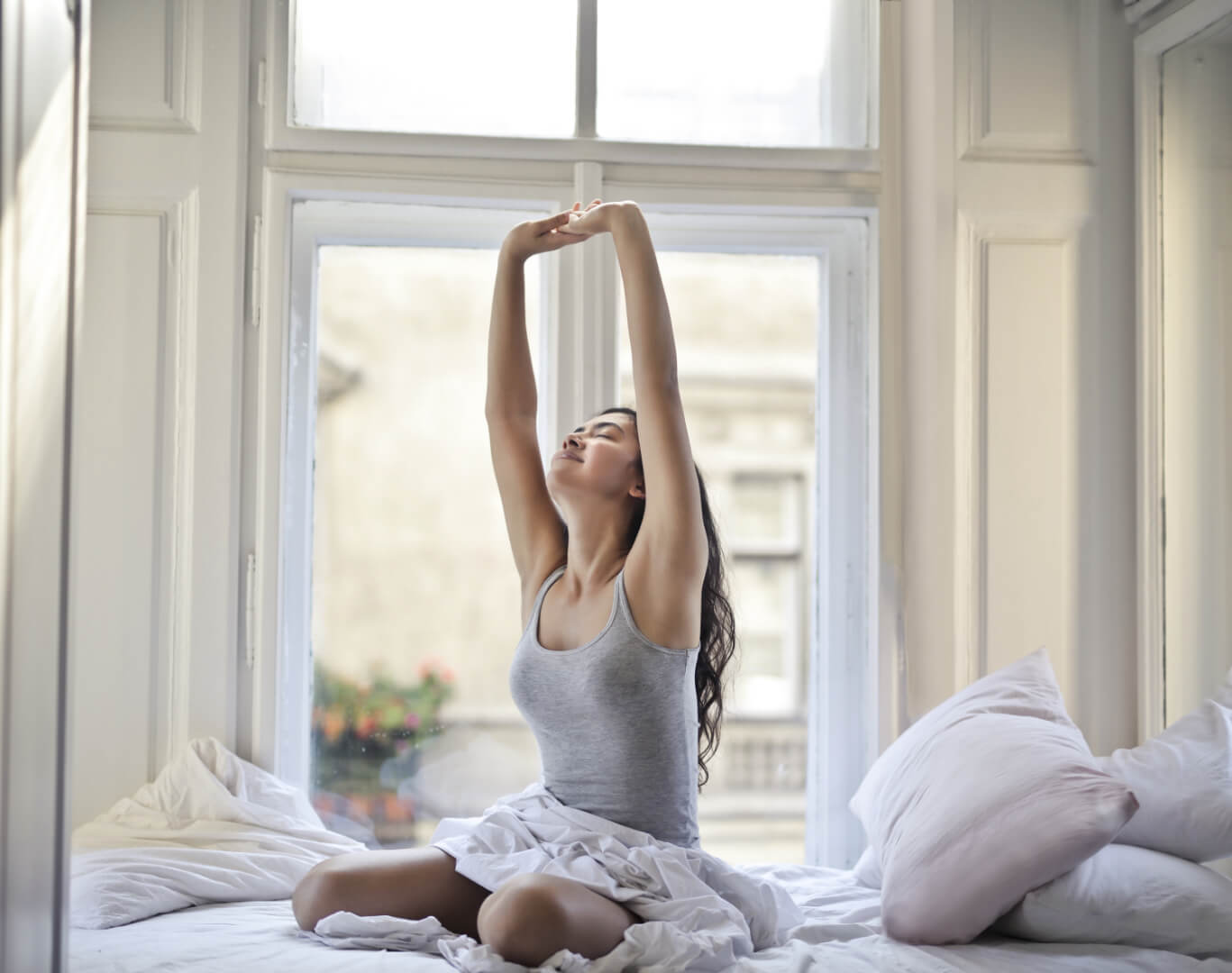I am someone who has historically struggled with sleep. It is a lonely and frustrating feeling, lying awake while it feels like the world around you is blissfully snoozing. Worries are magnified; problems seem insurmountable.
But we all supposedly know what to do. Turn off screens a couple of hours before bed, make sure your room is dark and quiet, and that it’s not too hot or cold. You might throw in a warm drink, without caffeine of course, or have a warm bath before bed.
So far so good. But despite this, many are still struggling with sleep. Women seem to be disproportionally affected by poor sleep, and more than two thirds of the UK population suffer from disrupted sleep, be that waking up in the night or too early in the morning.
And while the importance of a quiet and calming bedtime routine is important (sleep hygiene after all isn’t incorrect), there is a piece of the puzzle that is less widely talked about. That is: it isn’t just what you do in the run up to bedtime that’s important but also what you do in the morning that could be impacting how well you sleep at night.
Our body has an internal body clock or ‘circadian rhythm’ which has evolved over thousands of years. Our eyes are receiving constant signals from light and our retinas are the gateway to our hormone receptors. What they are exposed to affects the messages sent to the brain and which hormones are released.
It is light exposure in the morning that triggers cortisol. This is a hormone needed for energy to kick start the day, but crucially we want it when we get up and not as we are going to bed.
And natural light triggers it.
Light is measured in lux, with different light sources providing different levels. Going outside on a sunny day would provide around 100,000 lux and it would only take 2-3 minutes to trigger cortisol release, whereas on a cloudy day (more like your average day in the UK), it may take up to 30 minutes to release cortisol (around 10,000 lux).
But wouldn’t turning on the lights do the same thing?
It may take hours to release cortisol from indoor light as it provides around 1,000 lux.
So getting outside first thing and looking up at the sky, even on cloudy days, could be an easy (and less well-known) way to better sleep.
That might involve having your cup of tea in the garden first thing or walking to the station. If you’re working from home, or heading straight from home into a car or onto a train, still try and get some sunlight on your eyes. Unfortunately window glass also gets in the way. If you can, avoid sunglasses even if only for a few minutes in the morning, on sunnier days.
While a warm drink and a dark, quiet room is definitely an important part of the toolkit at when it comes to a good night’s sleep; just as important is your morning routine. Even on the gloomiest of winter mornings the sun is still shining behind the clouds (somewhere), so look up. It might be just the thing you need for a better night’s sleep.
